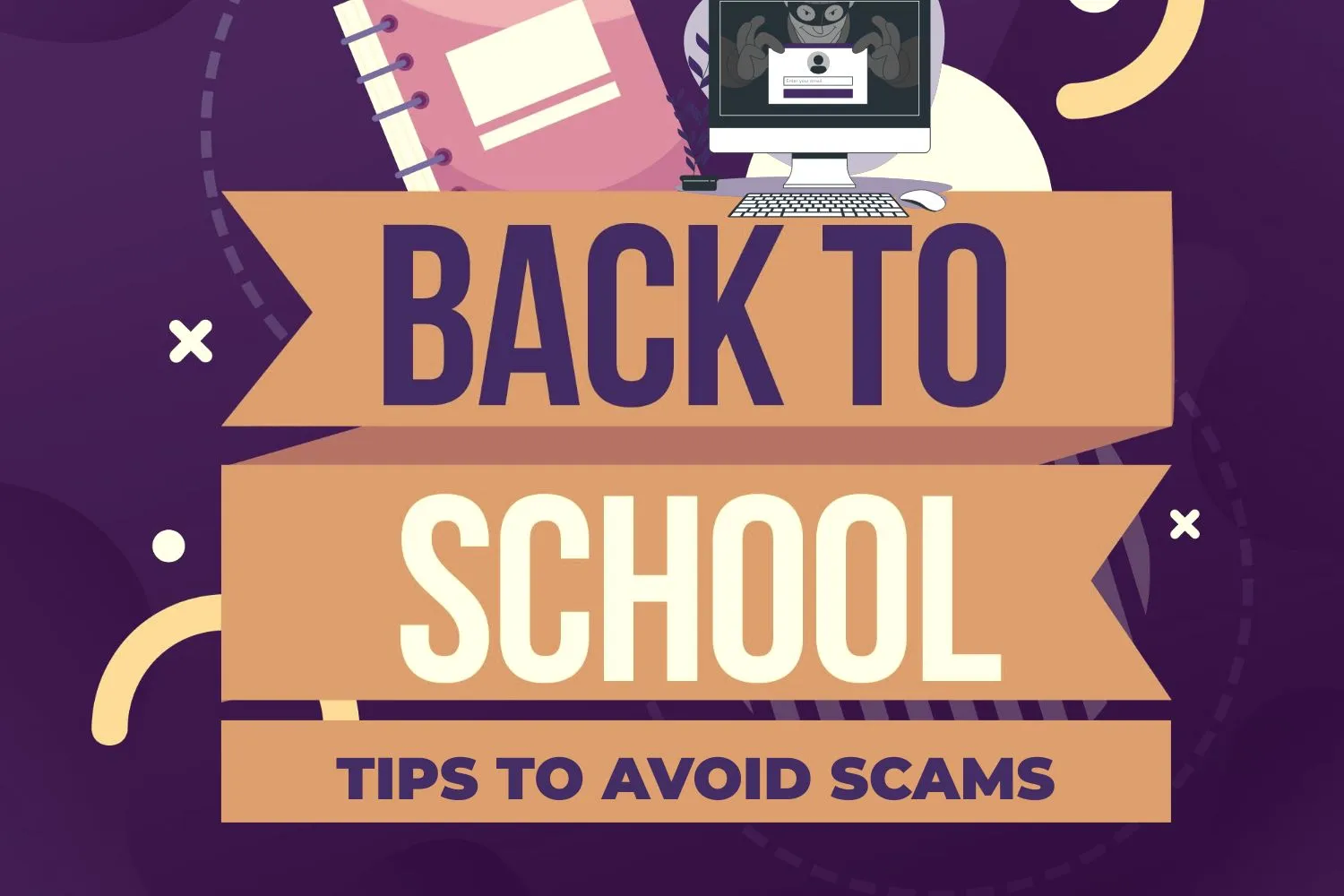- Home
- Personal Finances
- Unveiling Back to School Scams and Tips to Stay Safe
Unveiling Back to School Scams and Tips to Stay Safe
- Personal Finances

The start of a new school year is always exciting, but it can also be a time when scammers try to take advantage of students and parents. Whether it’s fake scholarships, bogus online courses, or phishing emails, there are many ways that fraudsters can try to trick you into giving them your money or personal information. Here are some common back to school scams and how to avoid them.
Fake Scholarships
One of the most popular back to school scams targeting students is the offer of a fake scholarship. Scammers may claim that you have won a scholarship that you never applied for, or that you qualify for a scholarship that requires a fee to apply or claim. They may also ask for your bank account or credit card details, or your Social Security number, to process your application or award. These are all red flags that indicate a scam.
To avoid back to school scams by falling for fake scholarships, you should:
- Never pay any money to apply for or receive a scholarship. Legitimate scholarships are free and do not require any fees.
- Never give out your personal or financial information to anyone who contacts you unsolicited. Legitimate scholarship providers will not ask for your bank account, credit card, or Social Security number over the phone, email, or text message.
- Research the scholarship provider before applying. Check their website, contact information, and reputation. Look for reviews from other students or organizations that can verify their legitimacy.
- Apply only for scholarships that match your eligibility and interests. Do not fall for offers that sound too good to be true, such as guaranteed awards or scholarships that do not require any essays or transcripts.
Bogus Online Courses
Another common scam targeting students is the offer of bogus online courses. Scammers may create fake websites or ads that promise to provide high-quality online education at a low cost. They may claim that their courses are accredited, recognized, or endorsed by reputable institutions or organizations. They may also offer fake diplomas, certificates, or degrees that are worthless in the real world.
To avoid back to school scams by falling for bogus online courses, you should:
- Research the online school or program before enrolling. Check their website, contact information, and reputation. Look for reviews from other students or organizations that can attest to their quality and credibility.
- Compare the online school or program with other options. Look at the curriculum, faculty, tuition, fees, financial aid, admission requirements, graduation rates, and student outcomes. See how they match up with your goals and expectations.
- Be wary of any online school or program that promises easy or fast results, such as earning a degree in a few weeks or months or getting credits for life experience. These are usually signs of a scam.
Phishing Emails
A third of common back to school scams targeting students is the phishing email. Phishing is a type of online fraud where scammers send emails that look like they come from legitimate sources, such as your school, bank, or government agency. They may ask you to click on a link, open an attachment, or provide your personal or financial information. The link may lead you to a fake website that looks like the real one, where they can steal your login credentials, account details, or identity. The attachment may contain malware that can infect your computer and access your files, passwords, or webcam.
To avoid back to school scams by falling for phishing emails, you should:
- Never click on links or open attachments from unknown or suspicious senders. Even if the sender appears to be someone you know or trust, they may have been hacked or spoofed by scammers.
- Always check the sender’s email address and the URL of the link before clicking on it. Look for any misspellings, typos, or unusual characters that may indicate a fake email address or website.
- Always use strong passwords and change them regularly. Do not use the same password for multiple accounts or websites. Use a combination of letters, numbers, symbols, and cases that are hard to guess.
- Always use antivirus software and update it regularly. Antivirus software can help protect your computer from malware and other threats.
Back To School scams Conclusion
Back to school scams can ruin your excitement and preparation for the new school year. By being aware of these common scams and how to avoid them, you can protect yourself and your money from fraudsters. Remember to always be cautious and skeptical when dealing with offers or requests that seem too good to be true, ask for money or personal information upfront, or pressure you to act quickly. If you suspect that you have been a victim of a scam, report it to the Federal Trade Commission (https://www.ftc.gov/complaint), your state attorney general, or your local police.
Frequently Asked Questions
1. How can I tell if an email is phishing or not?
A phishing email may have one or more of the following signs:
- It comes from an unknown or suspicious sender.
- It has a misleading subject line or message that tries to create a sense of urgency, curiosity, or fear.
- It asks you to click on a link, open an attachment, or provide your personal or financial information.
- It has misspellings, typos, or unusual characters in the sender's email address or the URL of the link.
- It does not address you by your name or use a personalized greeting.
2. What should I do if I think I have been scammed?
If you think you have been scammed, you should take the following steps:
- Contact your bank, credit card company, or other financial institution and report the fraud. They may be able to stop the transaction, reverse the charges, or freeze your account.
- Change your passwords and security questions for your online accounts. You may also want to enable two-factor authentication for extra security.
- Report the scam to the Federal Trade Commission (https://www.ftc.gov/complaint), your state attorney general, or your local police. They may be able to investigate the scam and take legal action against the scammers.
- Alert your school, friends, family, and other contacts about the scam. They may also be targeted by the same scammers.
3. How can I prevent being scammed in the future?
Be cautious and skeptical when dealing with offers or requests that seem too good to be true, ask for money or personal information upfront, or pressure you to act quickly because it's a sign of back to school scams.
- Do your research before applying for scholarships, enrolling in online courses, or responding to emails. Look for credible sources of information and reviews that can verify their legitimacy and quality.
- Protect your personal and financial information. Do not share it with anyone who contacts you unsolicited. Use secure websites and networks when making online transactions. Use strong passwords and antivirus software to safeguard your computer and accounts.
Personal Loan Options in Texas From State Licensed Direct Lender
Get an Installment Loan to cover your Unexpected Expenses.
You can get up to $1,000 as soon as the next business day.







